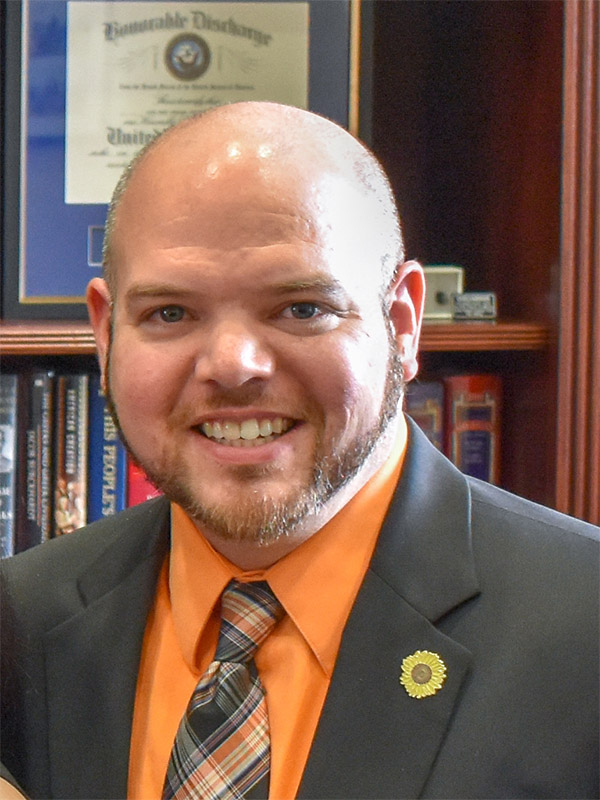

Chris Culter, BS, RRT, RRT-ACCS, wanted to become a pharmacist, but one course in organic chemistry was enough to convince him to look elsewhere for a career.
“I decided to become an RT after hearing about the profession from my wife’s family,” said the clinical specialist of education and training at Michigan Hospital/Michigan Medicine in Ann Arbor. “She has many family members that are in the field and they suggested I check it out.”
It turned out to be the right move for him. He loves teaching his fellow RTs, medical staff, and family members about respiratory conditions; and the job has afforded him the opportunity to conduct clinical research as well.
“I have always enjoyed learning how things work,” Culter said. “To me, research helps answer [the] questions I have.”
His Open Forum abstract, EIT Assessment of Lung Volume and Tidal Distribution: A Comparison of Two Noninvasive Ventilation Devices, was selected for the 2019 Editors’ Choice session at the recent AARC Congress in New Orleans.
Culter says he decided to embark on the study because EIT is a fairly new technology that has yet to receive FDA approval.
“I really wanted to learn how this technology works, and how it might be beneficial to my patients,” he said.
For Culter, the hardest part about conducting a research study is finding the time to do the work, but he makes it happen by devoting off hours and off days to the task. It’s well worth the effort.
“The best thing about conducting research is I get to learn new things and present those findings to my colleagues,” he said. He believes the AARC’s science journal is the place to publish the results. “Respiratory Care is great about helping respiratory therapists publish their research,” Culter said.
Chris Culter has three great bits of advice for any RT who might be thinking about conducting a research project of their own –
- Start reading the literature and develop the question you want to ask. By reading you will see if your question has already been answered, and if not, it might help you develop a way to test your question.
- Start small. You may have a large question you want to answer but it may seem impossible, so you never start.
- Team up with others who will question you and help you think critically about your research.
Great advice on conducting respiratory care research can be found in the Research Community on AARConnect.





